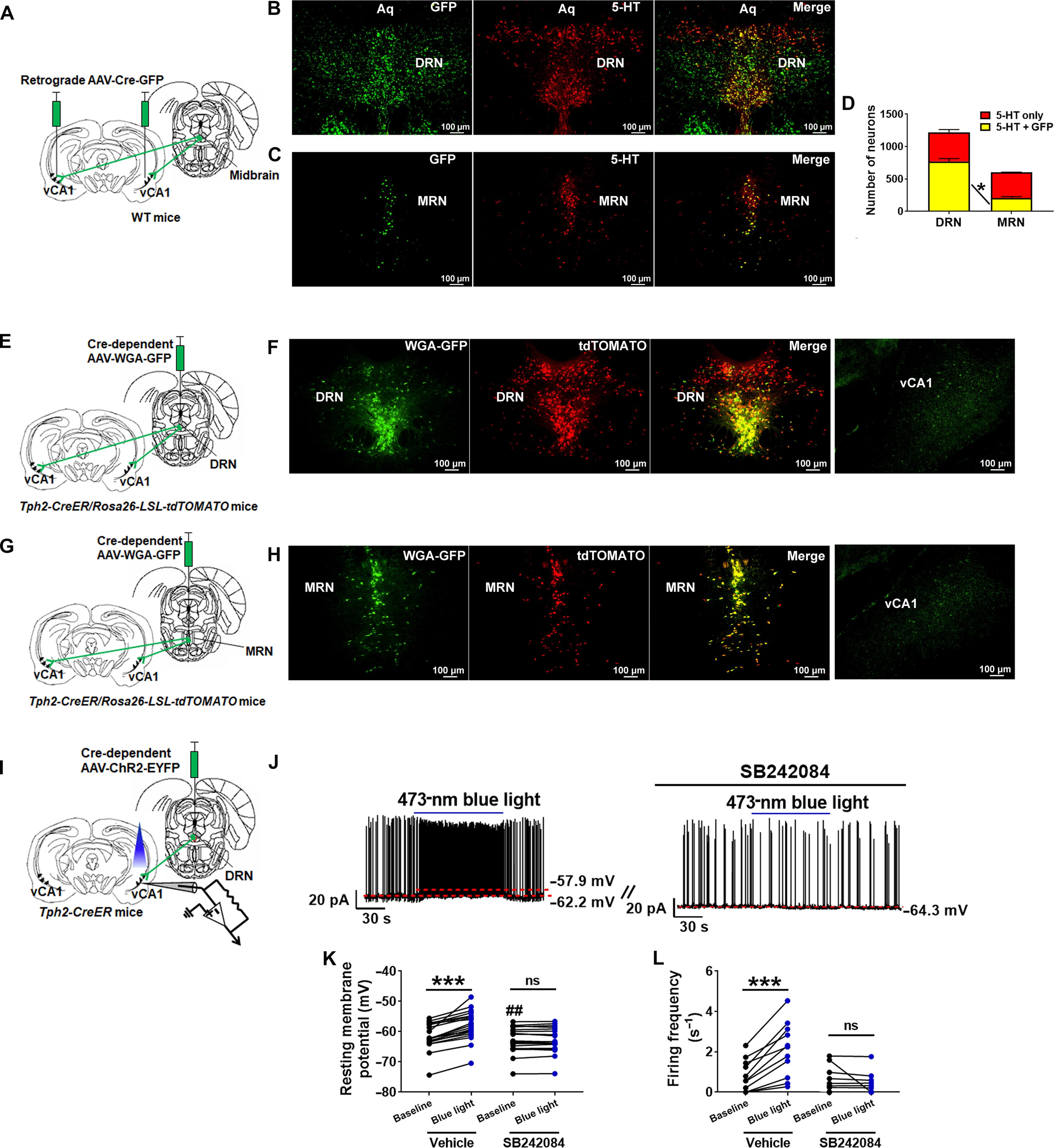表达血清素 2C 受体的神经回路调节小鼠和人类的记忆
IF 12.5
1区 综合性期刊
Q1 MULTIDISCIPLINARY SCIENCES
引用次数: 0
摘要
记忆力减退是阿尔茨海默病(AD)的特征之一。啮齿动物实验和人类死后研究表明,5-羟色胺(5-hydroxytryptamine,5-HT)在记忆中发挥作用,但其潜在机制尚不清楚。在这里,我们研究了 5-HT 2C 受体(5-HT 2C R)在调节记忆中的作用。表达人源化 HTR2C 突变的转基因小鼠表现出海马腹侧 CA1(vCA1)神经元可塑性受损和记忆力减退。此外,5-HT 神经元投射到 vCA1 神经元并与之发生突触。中断vCA1投射神经元的5-HT合成或删除vCA1中的5-HT 2C Rs会损害神经可塑性和记忆。我们的研究表明,选择性 5-HT 2C R 激动剂洛卡色林(lorcaserin)能改善 AD 小鼠模型的突触可塑性和记忆。总之,我们证明了海马 5-HT 2C R 信号调节记忆,这可能为使用 5-HT 2C R 激动剂治疗痴呆症提供参考。本文章由计算机程序翻译,如有差异,请以英文原文为准。

Neural circuits expressing the serotonin 2C receptor regulate memory in mice and humans
Declined memory is a hallmark of Alzheimer’s disease (AD). Experiments in rodents and human postmortem studies suggest that serotonin (5-hydroxytryptamine, 5-HT) plays a role in memory, but the underlying mechanisms are unknown. Here, we investigate the role of 5-HT 2C receptor (5-HT2CR) in regulating memory. Transgenic mice expressing a humanized HTR2C mutation exhibit impaired plasticity of hippocampal ventral CA1 (vCA1) neurons and reduced memory. Further, 5-HT neurons project to and synapse onto vCA1 neurons. Disruption of 5-HT synthesis in vCA1-projecting neurons or deletion of 5-HT2CRs in the vCA1 impairs neural plasticity and memory. We show that a selective 5-HT2CR agonist, lorcaserin, improves synaptic plasticity and memory in an AD mouse model. Cumulatively, we demonstrate that hippocampal 5-HT2CR signaling regulates memory, which may inform the use of 5-HT2CR agonists in the treatment of dementia.
求助全文
通过发布文献求助,成功后即可免费获取论文全文。
去求助
来源期刊

Science Advances
综合性期刊-综合性期刊
CiteScore
21.40
自引率
1.50%
发文量
1937
审稿时长
29 weeks
期刊介绍:
Science Advances, an open-access journal by AAAS, publishes impactful research in diverse scientific areas. It aims for fair, fast, and expert peer review, providing freely accessible research to readers. Led by distinguished scientists, the journal supports AAAS's mission by extending Science magazine's capacity to identify and promote significant advances. Evolving digital publishing technologies play a crucial role in advancing AAAS's global mission for science communication and benefitting humankind.
 求助内容:
求助内容: 应助结果提醒方式:
应助结果提醒方式:


